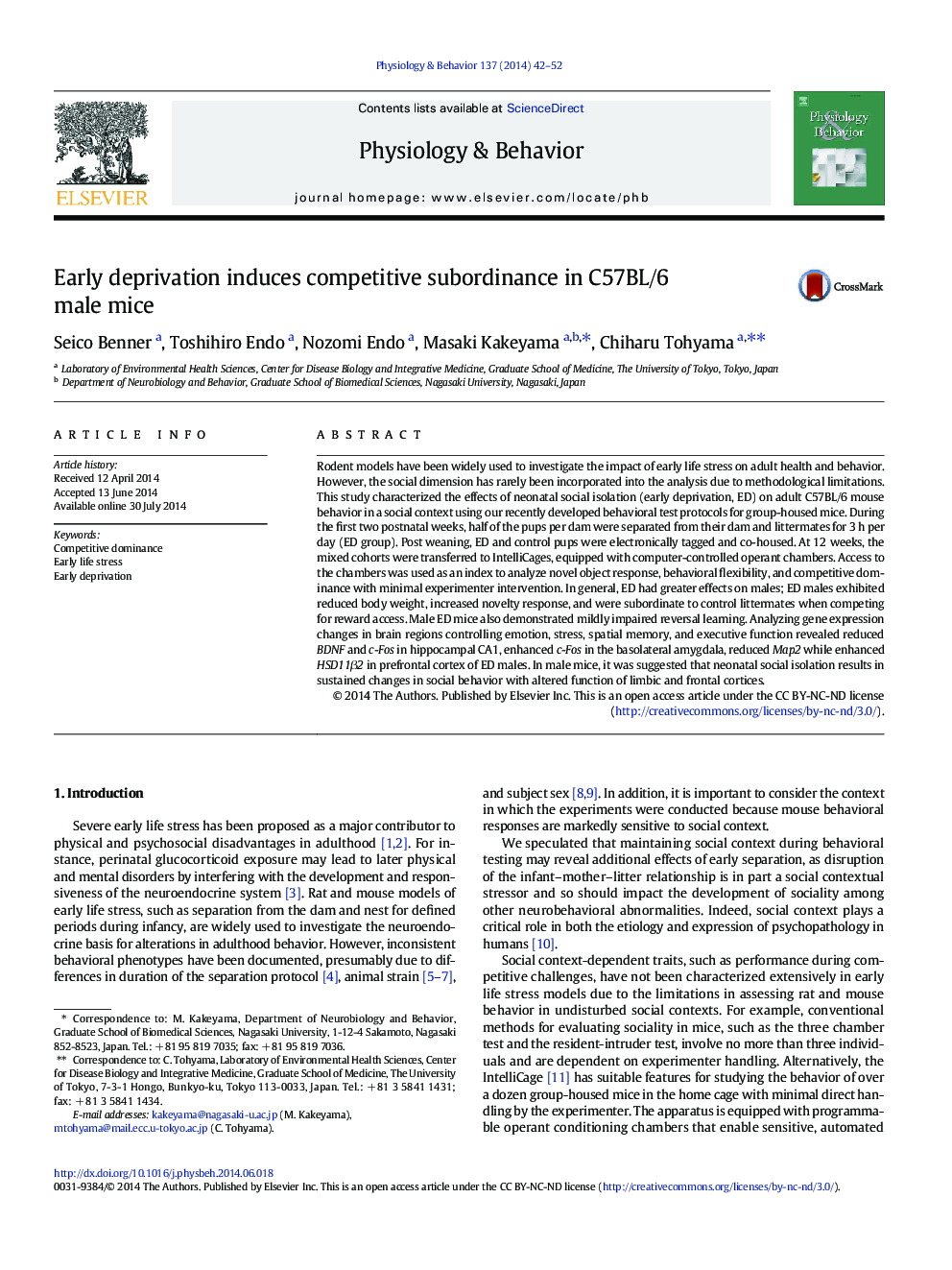| کد مقاله | کد نشریه | سال انتشار | مقاله انگلیسی | نسخه تمام متن |
|---|---|---|---|---|
| 5924117 | 1571180 | 2014 | 11 صفحه PDF | دانلود رایگان |

Rodent models have been widely used to investigate the impact of early life stress on adult health and behavior. However, the social dimension has rarely been incorporated into the analysis due to methodological limitations. This study characterized the effects of neonatal social isolation (early deprivation, ED) on adult C57BL/6 mouse behavior in a social context using our recently developed behavioral test protocols for group-housed mice. During the first two postnatal weeks, half of the pups per dam were separated from their dam and littermates for 3 h per day (ED group). Post weaning, ED and control pups were electronically tagged and co-housed. At 12 weeks, the mixed cohorts were transferred to IntelliCages, equipped with computer-controlled operant chambers. Access to the chambers was used as an index to analyze novel object response, behavioral flexibility, and competitive dominance with minimal experimenter intervention. In general, ED had greater effects on males; ED males exhibited reduced body weight, increased novelty response, and were subordinate to control littermates when competing for reward access. Male ED mice also demonstrated mildly impaired reversal learning. Analyzing gene expression changes in brain regions controlling emotion, stress, spatial memory, and executive function revealed reduced BDNF and c-Fos in hippocampal CA1, enhanced c-Fos in the basolateral amygdala, reduced Map2 while enhanced HSD11β2 in prefrontal cortex of ED males. In male mice, it was suggested that neonatal social isolation results in sustained changes in social behavior with altered function of limbic and frontal cortices.
Journal: Physiology & Behavior - Volume 137, October 2014, Pages 42-52